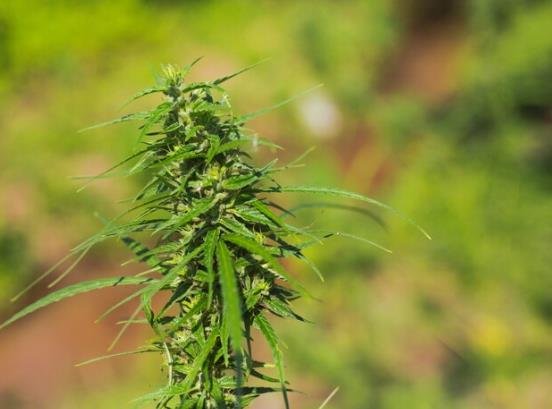Hemp retailers and growers in Tennessee have moved swiftly to block upcoming state regulations that could threaten the sale of THCA products, filing a legal challenge just days before the rules take effect.
Last week, the Tennessee Healthy Alternatives Association and the Tennessee Growers Coalition filed complaints against the state’s Department of Agriculture. They argue that the new rules, which require hemp product testing, directly conflict with a 2023 law regulating hemp products. The groups are seeking an immediate injunction to halt the regulations, which are set to take effect on December 26.
The rules in question would limit the combined THC content of delta-9 and THCA products to 0.3%, a level that would effectively prohibit the sale of hemp flower containing THCA. THCA, or tetrahydrocannabinolic acid, is the acidic precursor to THC, which becomes psychoactive only when heated. The concern for hemp growers and retailers is that the new regulations could render THCA flower products non-compliant, given how the compound converts to THC when exposed to heat.
Conflict Between Federal Law and State Regulations
Hemp is federally legal in the United States as long as it contains no more than 0.3% THC, as defined by the 2018 Farm Bill. This legislation established the framework for hemp legalization, allowing states to regulate the industry as they see fit. In Tennessee, hemp is similarly regulated, with the state allowing its cultivation and sale. However, medical and adult-use marijuana remains illegal.
THCA products have gained popularity in recent years, particularly in states like Tennessee, where legal markets for THC are not yet fully developed. For many consumers, THCA offers a non-psychoactive alternative to THC products, with claims of therapeutic benefits without the “high” associated with marijuana.
However, the state’s Department of Agriculture has issued new rules that set strict testing requirements for hemp products, including THCA. Under these regulations, the combined THC content of products made from hemp cannot exceed the 0.3% threshold. The problem is that THCA, when heated, can convert into delta-9 THC, causing the product to exceed the legal limit.
This poses a major issue for hemp flower sellers, as the conversion from THCA to THC could cause their products to fail state-required testing, even if the hemp itself is legally compliant before the conversion.

Legal Challenge to the Rules
The Tennessee Healthy Alternatives Association and Tennessee Growers Coalition have expressed deep concerns that these new regulations will harm Tennessee’s hemp industry, which is estimated to be worth between $200 million and $580 million annually, depending on market conditions. These groups argue that the state’s new rules could disrupt the thriving hemp market, forcing many businesses to halt the sale of THCA products, which could result in substantial financial losses.
The legal challenge centers on the claim that the new rules contradict a 2023 state law that was designed to regulate hemp-derived products without unnecessary burdens. Under this law, hemp products with trace amounts of THC should remain compliant, and THCA should not be regulated as a controlled substance in the same way as THC. The plaintiffs assert that the testing standards for THCA products fail to account for the inherent characteristics of the compound and its conversion process when subjected to heat.
Despite their objections, the Tennessee Department of Agriculture has already rejected previous appeals from the hemp industry to alter or delay the enforcement of these new rules. With little time left before the December 26 deadline, hemp retailers and growers are pushing for an immediate injunction in Davidson County Chancery Court to prevent the rules from going into effect.
Impact on Tennessee’s Hemp Market
Tennessee’s hemp industry has grown rapidly in recent years, thanks to increasing consumer demand for hemp-derived products, including CBD, delta-8, and THCA. According to local media, the state has positioned itself as one of the major players in the hemp market, thanks to its extensive agricultural infrastructure and large-scale cultivation of hemp. But with the potential for new regulations, many fear that the industry could suffer irreparable harm if these restrictions are enforced.
The conflict over THCA products underscores broader tensions in the hemp and cannabis industry, with states grappling with how to regulate a rapidly growing market while adhering to federal guidelines. Hemp groups have expressed frustration with what they see as overreaching state regulations that could hinder the industry’s development and stifle economic growth.
What’s Next?
As Tennessee’s hemp industry faces an uncertain future, the legal battle is far from over. The hemp groups have asked for an emergency hearing, hoping to receive a preliminary injunction that would temporarily halt the enforcement of the new rules. If successful, this legal action could buy the hemp industry some time to continue operating under the current regulatory framework while pushing for changes to the law.
The outcome of the legal challenge could have broader implications for the hemp industry across the United States. Other states that are grappling with similar regulatory questions about THCA and other hemp-derived products will be watching closely to see how Tennessee’s legal battle unfolds.
Whether or not the hemp groups succeed in halting the rules, the issue of how to regulate THCA products is likely to remain a contentious topic in state legislatures across the country.
